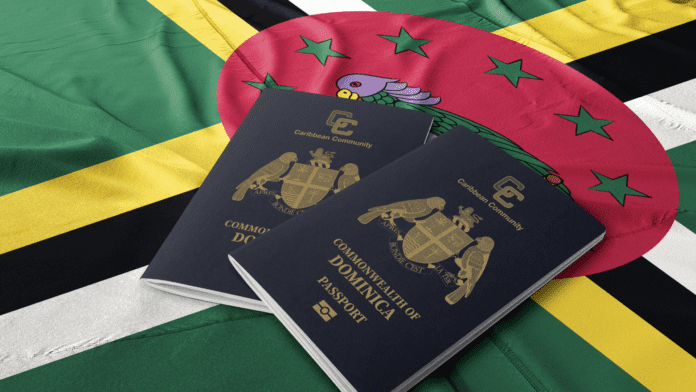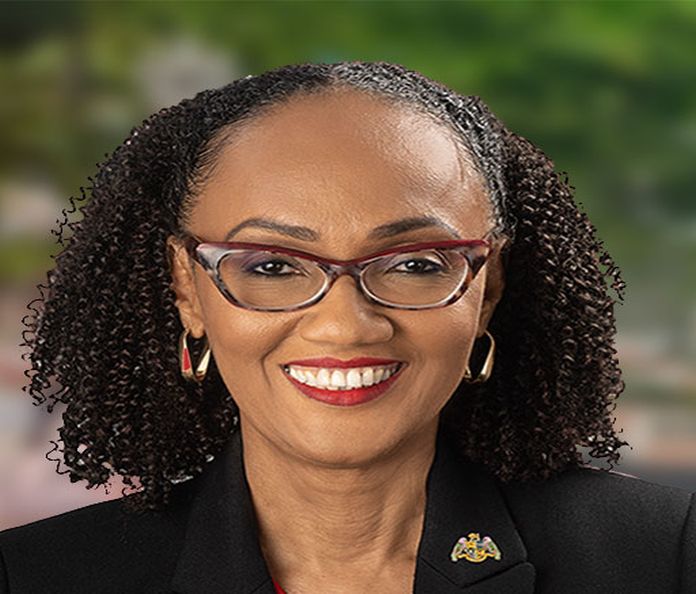By Caribbean News Global ![]()
TORONTO, Canada – It was only a matter of time before Caribbean CBI/CIP countries deprived citizenships “obtained by means of fraud, false representation or the concealment of a material fact.”
Caribbean News Global (CNG) has repeatedly noted that the Caribbean CIP/CBI countries would have to voluntarily revoke and/or have international institutions and foreign governments act to protect national security, global financial institutions and visa-free programmes.
State of play
“We are [today] 19, July 2023, imposing a visa requirement on all visitors from Dominica, Honduras, Namibia, Timor-Leste and Vanuatu,” said the UK Home Office. “ Nationals of these countries will also be required to obtain a Direct Airside Transit Visa if they intend to transit via the UK having booked travel to another country.
“Careful consideration of Dominica’s and Vanuatu’s operation of a citizenship by investment scheme has shown clear and evident abuse of the scheme, including the granting of citizenship to individuals known to pose a risk to the UK.”
Last month, Dominica “boosted compliance and transparency,” stating:
“Dominica’s updated CBI Programme demonstrates a dedication to strengthening transparency and compliance. Through the implementation of more stringent regulations, the government aims to guarantee that investments adhere to top-tier standards of due diligence and integrity.”
While Dominica has taken the heat on UK visa requirements, and financial stress currently reported, “real GDP grew by 5.6 percent in 2022 and an estimated 4.7 percent in 2023 returning to pre-pandemic output levels. These outturns reflect a rebound in tourism supported by public investment and buoyant Citizenship by Investment (CBI) revenues, IMF reports.
Dominica has taken the lead in defence of its national interest and shown leadership, however,” Caribbean CBI countries are not at a point to the great reversal, resulting in relieving “financial stress, security concerns and systemic advantages to the practice of underselling.”
However, while Caribbean CBI countries organised towards, MOA – July 1, 2024, Caribbean CIP/CBI countries are very much in the throes of quandaries; while, announcements by St Kitts and Nevis, among others say they are “prepared” to revoke citizenships obtained by “fraud,” hitherto unable to act, presumable under threat of external CIP masters.
Issues and impact
The Statutory Rules and Order No.4 of 2024, made by the minister Miriam Blanchard under section 10 (2) and (5) of the Commonwealth of Dominica Citizenship Act, Chap.1:10. (Gazetted 6th June, 2024.) reads:
“The scheduled persons are deprived of their citizenship of the Commonwealth of Dominica on the grounds that – (a) they obtained registration or certificate of naturalisation by means of fraud, false representation or the concealment of a material fact; and (b) it is not conducive that a scheduled person continue to be a citizen of Dominica,” listing names aka’s, origin, gender and citizenship: 2019 – 2022.
Citizenship Deprivation Order 2024 SRO No.4 of 2024
The Commonwealth of Dominica “Order to deprive citizenship” is significant to Caribbean CIP/CBI countries’ method of operations. The distribution list of CIP/CBI nationals most affected originate from Iraq, Egyptians, Iranians, Nigerians, Syrians, Afgans, Sudan and Jordan is most revelling.
Antigua and Barbuda’s ambassador to the United States, Sir Ronald Sanders, in the article, ‘Antigua – Barbuda ambassador questions legislation before US House of Representatives on Citizenship by Investment, March 9, 2022,’ noted:
“On March 3, three Representatives introduced the “No Travel for Traffickers Act” designed to penalise countries that operate citizenship by investment programmes, including by revoking their eligibility for US Visa Waivers and by working on the United Kingdom and the European Union to eliminate visa-free travel in the Schengen area.”

The methodology developed in Caribbean CIP/CBI countries conducting due diligence, transaction and business relationships has consequences in the compliance world.
Matters of credibility and a clear process have been raised before in violation of the laws regarding the issuance of citizenship, the economic, social and political impacts of such schemes and discoveries.
The access provided to residency or citizenship in exchange for investment raises particular challenges in identifying questions.
In the case of the 68 Dominicans deprived of CBI/CIP citizenships, and others under consideration: is there a process for appeal?
On the matter of CBI consultancy, risk aversion to both the applicant and country, and resolution, it is vital to ascertain the services of a competent consultant, sales agent, and an experienced attorney when pursuing economic citizenship.
– Was anyone fired, withdrawal of licence and/or fined, corresponding to the 68 revocations? Have the agents/consultants/lawyers and international databases notified? Surely, these speak to deterrents and accountability.
Discounting by clever means, marketing ploys and financing CBI schemes allowed by certain Caribbean Islands continue to pose risk, systemic corruption, and contempt.
In Saint Lucia, Dam and Daff seem the order of the day! Hopefully, not much longer, frightened to disclose the number of passports issued and approved. The CIP minister has mastered the art form of diverting and dodging questions, as of July 29, 2024.
Despite the common features of Caribbean CIP/CBI countries, the serious matter of discounting and/or underselling continues – utilizing specific methodologies.
Accountability
Citing Caribbean CIP/CBI countries’ utterances to MOAs and various types of audits and investigations there are a few simple inquiries that islands’ prime ministers, chief of police/immigration, CIP ministers and the accompanied CIP/CBI units can collective answer, per their jurisdictions;
- How many files were allocated? (Real Estate, Infrastructure);
- How many passports were issued? (Earlier today a hilarious CIP minister said:” We don’t give out passports”).
- Where’s the money and how much?
- Legislation needs to be specific to minimise the constraints incumbent, the investor and recipient county, in particular, proof of payments; – Who did you pay, and how much?
- A review of the client file and corresponding bank reconciliation (end-end) for verification is not complicated.
Caribbean CIP/CBI is the key engine to economic growth, followed by foreign direct investments. Progress is possible. Dominica can attest to gains in poverty alleviation, the housing revolution, and climate adaptation.
Thus, it is important, relative to any variance and the specific methodology deployed for applying and granting citizenship, and in the “process of appeal”: can the applicant and/or agent pay the difference?
Concealment of material fact is often referred to as failure to disclose or partial disclosures of information required on an application form, which ought to be within the knowledge of one party of which the other has no actual or presumptive knowledge. It is also referred to as a false statement – the acts of making false statements, falsifying, concealing or covering up – are essentially identical concepts and often result from falsification.
Moving forward on deprived citizenship/revocation requires the burden of proof to be presented, consequences extracted and penalties enforced.





